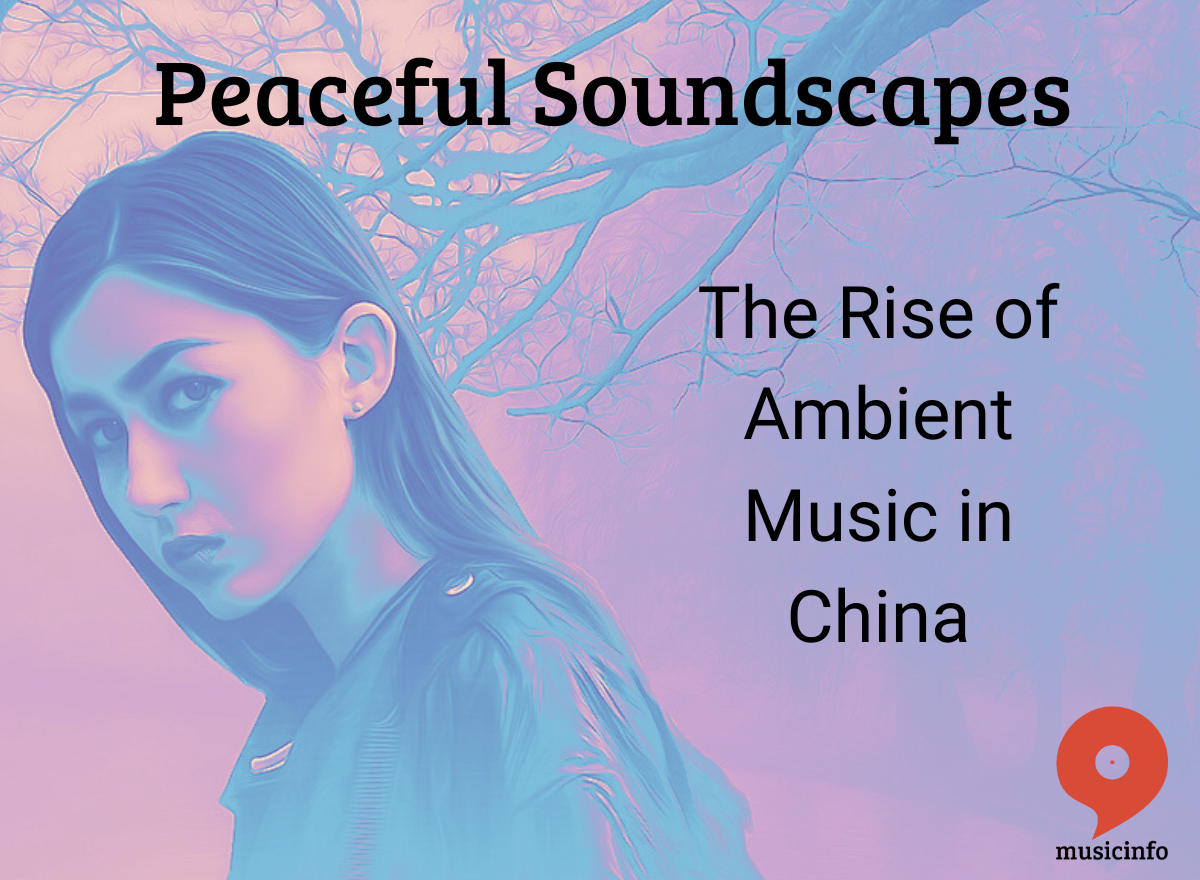
Ambient music is a genre that focuses more on creating different sonic atmospheres, moods and tones over traditional musical melodies, structures or rhythms. These soundscapes can be created for example by using traditional instruments, synthesizers, sampling recordings and nature sounds.
The genre originated in the 1960s and 1970s partly due to the introduction of the synthesizer to the big audience. It was popularized by the British musician Brian Eno in 1978 with his album Ambient 1: Music for Airports (which has been actually installed and performed in several airports!). One of the precursors of ambient music was French composer Erik Satie, who among other things composed background music to be played during e.g. dinners. He wanted this “Furniture music” (as he titled it) to create a background atmosphere without drawing the attention away from the actual activity at hand.
In recent years China has witnessed a rise in the popularity of ambient music. This can be seen from the emergence of new ambient music festivals, experimental music venues and the rising number of Chinese artists exploring and creating ambient compositions. Some examples of older and newer Chinese ambient music artists and artists incorporating ambient elements include Hualun, Xie Yugang (the guitarist of the post-rock band Wang Wen) and Solent.
There are also many Chinese record labels dedicated to ambient and other “non-traditional” music genres. One of them is the experimental record label Playrec, which has many artists who explore the limits of audial expression.
We can also see the rising trend in the listening amounts of ambient music from our own Musicinfo artist database. For example the number of listens per track in the “electronic ambient” genre rose almost 1000% from 2021 to 2022. A similar trend can be seen in the “nature” genre as the listens per track have skyrocketed a staggering 1300% from 2021 to 2022.
Urbanization and escapism: The rapidly urbanizing cities in China can create stress-inducing environments which generate an increasing demand for ways to relax and escape the fast-paced new lifestyle. Ambient music can be one convenient solution for that - just put on your headphones and drift off to your peaceful place.
Emotional well-being: The age we live in is characterized by societal pressures and ambient music can offer a therapeutic sonic experience helping with emotional release.
Cultural curiosity: The younger generation in China is more open to exploring global trends and seeking for new sonic landscapes. Ambient music can offer new experiences with its unique approach on musical expression.
The increasing popularity of sync-licensing: Many artists are looking for new ways of making money with their music and are offering their tracks to be synced to movies, advertisement, short-videos in social media, video games etc. Due to its abstract nature, ambient music can compliment many types of visual media. Therefore it makes sense that many visual creators in need of great music look for the perfect soundscape for their videos from the diverse realm of ambient music. The more ambient music is exposed to different audiences via movies, videos and advertisements the more demand it will get; people will search for the song they heard on the video, other visual creators take inspiration from works with ambient music and so on. Musicinfo also offers sync licensing for distributed music. Learn more from our blog about the topic.
Musical diversity: As more and more artists get recognition and the number of platforms for performing grows in China, the increasing popularity of ambient music paves the way for the exploration of alternative music genres. The rising prevalence of all the “non-traditional” styles can challenge the dominance of the mainstream music styles in the future.
Cultural fusion: Ambient music provides a medium for cross-cultural exchange of ideas. Chinese ambient music artists can collaborate with other artists globally, drawing inspiration for their compositions and creating unique new sounds to the Chinese ambient music scene.
Mental health awareness: Ambient music can increase the awareness about the importance of well-being and relaxation. Focusing on introspection, the genre can highlight the significance of taking time to oneself in today’s busy world.
If you haven’t yet familiarized yourself with ambient music, do it! You might find a new way for relaxing or focusing on work or studying. Personal note: I listen to it quite often while working and it usually helps me get to a good workflow. While writing this blog I listened to many Chinese ambient music artists, but actually some of them were “too interesting” - I had to focus on the music instead of actually writing… You have to find different ambient music for different situations (this applies to all music styles).
If you make more “traditional” music yourself you might find good inspiration from the different emotion provoking ambient soundscapes. Regardless of the genre you operate in, I bet there is a lot to draw from ambient music.
If you make music in the ballpark of “ambient” genres, it is a good idea to distribute your songs to China. The recently woken, ambient-hungry audience might give your music the attention it deserves.
Radiichina - Ambient Music China
Ambient 1: Music for Airports - Wikipedia
CVR FI24789448 | © Musicinfo 2025 | All rights reserved.